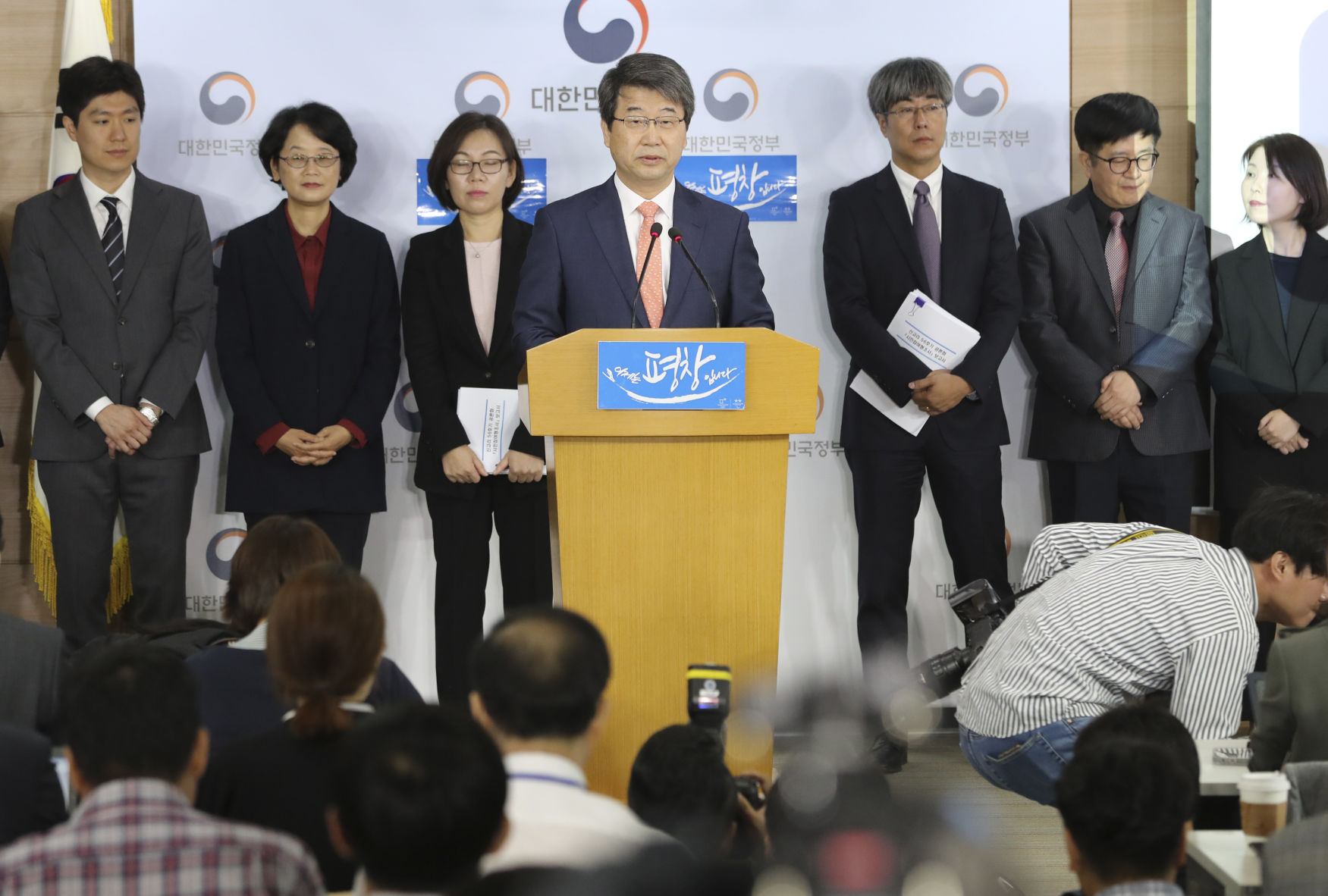SEOUL, South Korea (AP) — South Koreans recommended the government Friday continue building two stalled nuclear reactors that the new president had wanted to shutter, after months of deliberation on the issue that divided South Korea over the future of
SEOUL, South Korea (AP) — South Koreans recommended the government Friday continue building two stalled nuclear reactors that the new president had wanted to shutter, after months of deliberation on the issue that divided South Korea over the future of its key energy source.
A state commission that surveyed a panel of 471 citizens said a little over half of them still wanted South Korea to rely less on nuclear energy, even after South Korea resumes constructing the unfinished Shin Kori-5 and Shin Kori-6 reactors.
Kim Ji-hyung, head of the commission, said 59.5 percent of the panel supported resumption while 40.5 percent voted for discontinuation.
President Moon Jae-in made campaign promises to shut down the two reactors in southeastern Korea but he had vowed to accept the results of the commission’s public survey. Moon’s government still plans to gradually phase out nuclear energy and transition to renewables and natural gas. It has scrapped plans to build additional nuclear power plants and vowed not to extend licenses of existing ones.
Moon’s push to phase out nuclear energy is a departure from previous governments that tried to boost the industry as a new export industry. Nuclear energy provides about a third of energy needs in the resource-poor Asian country and used to be a source of pride. South Korea is one of the few exporters of nuclear technology in the world.
Public trust toward the nuclear industry has eroded, however, since Japan’s Fukushima nuclear meltdowns and the discovery that domestic reactors were built with fake components. A recent earthquake centered near South Korea’s nuclear reactors also caused alarm.
People who want the reactors built worry that halting their construction will increase energy expenses and lead to power shortages.
The decision to go ahead with the two plants is a temporary boon to the government’s monopoly operator of the nuclear power plants and the nuclear industry.
But the survey’s result does not reflect overriding trust on the nuclear industry. The panel of citizens recommended that even if South Korea resumes construction, it should strengthen safety standards, come up with ways to deal with spent nuclear fuel and root out corruption in the nuclear industry. They also recommended the government raise investment in renewable energy.




